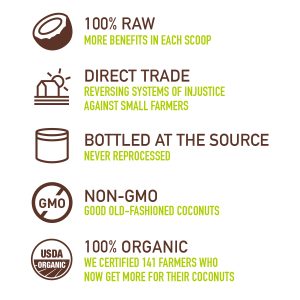Cooking oils are essential ingredients in kitchens around the world, playing a central role in various culinary traditions. However, the sourcing of cooking oils can have far-reaching environmental consequences, from deforestation to habitat destruction. As the demand for these oils continues to rise, it becomes imperative to adopt responsible sourcing practices that minimize environmental impact. In this article, we explore how cooking oils can be responsibly sourced to promote sustainability, biodiversity, and a healthier planet.
1. Understanding the Environmental Impact:
Before delving into responsible sourcing practices, it’s crucial to comprehend the environmental impact of cooking oil production. Many commonly used cooking oils, such as palm oil, soybean oil, and canola oil, have been associated with deforestation, habitat loss, and the use of harmful pesticides. The expansion of oil palm plantations, in particular, has been a major driver of deforestation in tropical regions, leading to biodiversity loss and contributing to climate change.
2. Choose Certified Sustainable Cooking Oils:
One of the most effective ways to minimize the environmental impact of cooking oils is to choose products with recognized sustainability certifications. Look for cooking oils that bear labels such as the Roundtable on Sustainable Palm Oil (RSPO) for palm oil or the Rainforest Alliance certification. These certifications indicate that the oil has been produced following strict environmental and social standards, promoting responsible land use, conservation, and fair labor practices.
3. Opt for Organic Cooking Oils:
Organic cooking oils are produced without the use of synthetic pesticides and fertilizers. Choosing organic options supports agricultural practices that prioritize soil health, biodiversity, and reduced environmental impact. Organic farming methods contribute to healthier ecosystems, promote natural pest control, and help maintain the balance of local ecosystems. Look for the organic certification on cooking oil labels to ensure a more environmentally friendly choice.
4. Diversify Cooking Oil Choices:
Reducing reliance on a single type of cooking oil can be a strategy for minimizing environmental impact. Diversifying the types of oils used in the kitchen can help distribute the demand across different crops, reducing the pressure on specific ecosystems. Experiment with oils like olive oil, avocado oil, sesame oil, or sunflower oil to explore a range of flavors while supporting agricultural diversity and sustainability.
5. Consider Local and Seasonal Oils:
Exploring local and seasonal cooking oils can be a sustainable choice that supports regional agriculture and reduces the carbon footprint associated with long-distance transportation. Many regions have traditional oils derived from locally grown crops. For example, consider using oils made from sunflower seeds, rapeseed, or flaxseed, depending on what is locally available and in season.
6. Transparent Supply Chains:
Choosing cooking oils from brands that prioritize transparency in their supply chains is essential for responsible sourcing. Brands that disclose the origins of their raw materials and detail their production processes demonstrate a commitment to accountability. Transparent supply chains allow consumers to make informed choices, supporting companies that prioritize environmental sustainability and ethical practices.
7. Support Small-Scale Producers:
Large-scale industrial agriculture is often associated with environmental degradation and social issues. Supporting small-scale producers and local cooperatives can be a more sustainable option. Small-scale farmers are more likely to adopt traditional, environmentally friendly practices and may have a more direct relationship with their land. Look for cooking oils produced by local or artisanal producers who prioritize sustainable and responsible farming methods.
8. Upcycled Cooking Oils:
Upcycled cooking oils are produced from byproducts of other food processes, such as using oil extracted from fruit pits or seeds that would otherwise go to waste. This innovative approach reduces the environmental impact associated with waste disposal while creating a valuable cooking oil resource. Look for upcycled cooking oils that contribute to a circular economy and support sustainable resource management.
9. Assess Packaging Sustainability:
While the focus is often on the oil itself, it’s crucial to consider the sustainability of the packaging. Opt for cooking oils that use eco-friendly packaging materials, such as glass or recyclable plastics. Some brands are transitioning to packaging made from recycled materials, contributing to a closed-loop system. Additionally, consider purchasing cooking oils in larger quantities to minimize packaging waste.
10. DIY Cooking Oil Infusions:
A creative and sustainable way to source cooking oils is by infusing them at home. By infusing oils with herbs, spices, or citrus peels, individuals can personalize flavors while controlling the sourcing of the base oil. This approach not only reduces reliance on commercially produced oils but also allows for the use of local, organic, or responsibly sourced oils as the base.
11. Community-Supported Agriculture (CSA) Programs:
Participating in Community-Supported Agriculture (CSA) programs can connect consumers directly with local farmers, providing access to responsibly sourced cooking oils. Many CSAs offer a variety of products, including oils produced from crops grown on the farm. Joining a CSA supports local agriculture, encourages responsible farming practices, and fosters a sense of community around sustainable food choices.
12. Consumer Advocacy and Awareness:
As consumers, individuals have the power to drive change through informed choices and advocacy. Stay informed about the environmental impact of different cooking oils, share knowledge with friends and family, and support campaigns that promote responsible sourcing. By raising awareness and advocating for sustainable practices, consumers can contribute to a broader shift toward environmentally conscious cooking oil production.
13. Explore Alternatives to Traditional Oils:
Consider exploring alternative sources of cooking oils that have minimal environmental impact. For example, algae-based oils are emerging as a sustainable alternative to traditional vegetable oils. Algae farming requires less land and water than conventional crops, and algae oils are rich in healthy omega-3 fatty acids. Stay informed about innovative developments in sustainable oil production to make environmentally conscious choices.
14. Stay Informed About Certification Standards:
Stay abreast of developments in certification standards for cooking oils. Certification programs evolve, and staying informed about the latest standards ensures that consumers are making choices aligned with the most current sustainability criteria. Being aware of certification updates and improvements allows individuals to actively support and demand higher environmental and social standards in the cooking oil industry.
15. Advocate for Policy Change:
Beyond individual choices, advocating for policy changes can have a substantial impact on the environmental sustainability of cooking oil production. Support initiatives and policies that promote responsible land use, biodiversity conservation, and fair labor practices within the cooking oil industry. Engaging in advocacy efforts contributes to a systemic shift toward more sustainable and environmentally friendly practices.
Conclusion:
Responsible sourcing of cooking oils is a crucial aspect of promoting sustainability in the kitchen. By choosing certified sustainable options, diversifying cooking oil choices, and supporting transparent and eco-friendly brands, individuals can contribute to the preservation of biodiversity, reduction of deforestation, and overall environmental well-being. Making informed choices about cooking oil sourcing empowers consumers to align their culinary practices with a commitment to a healthier planet.

















